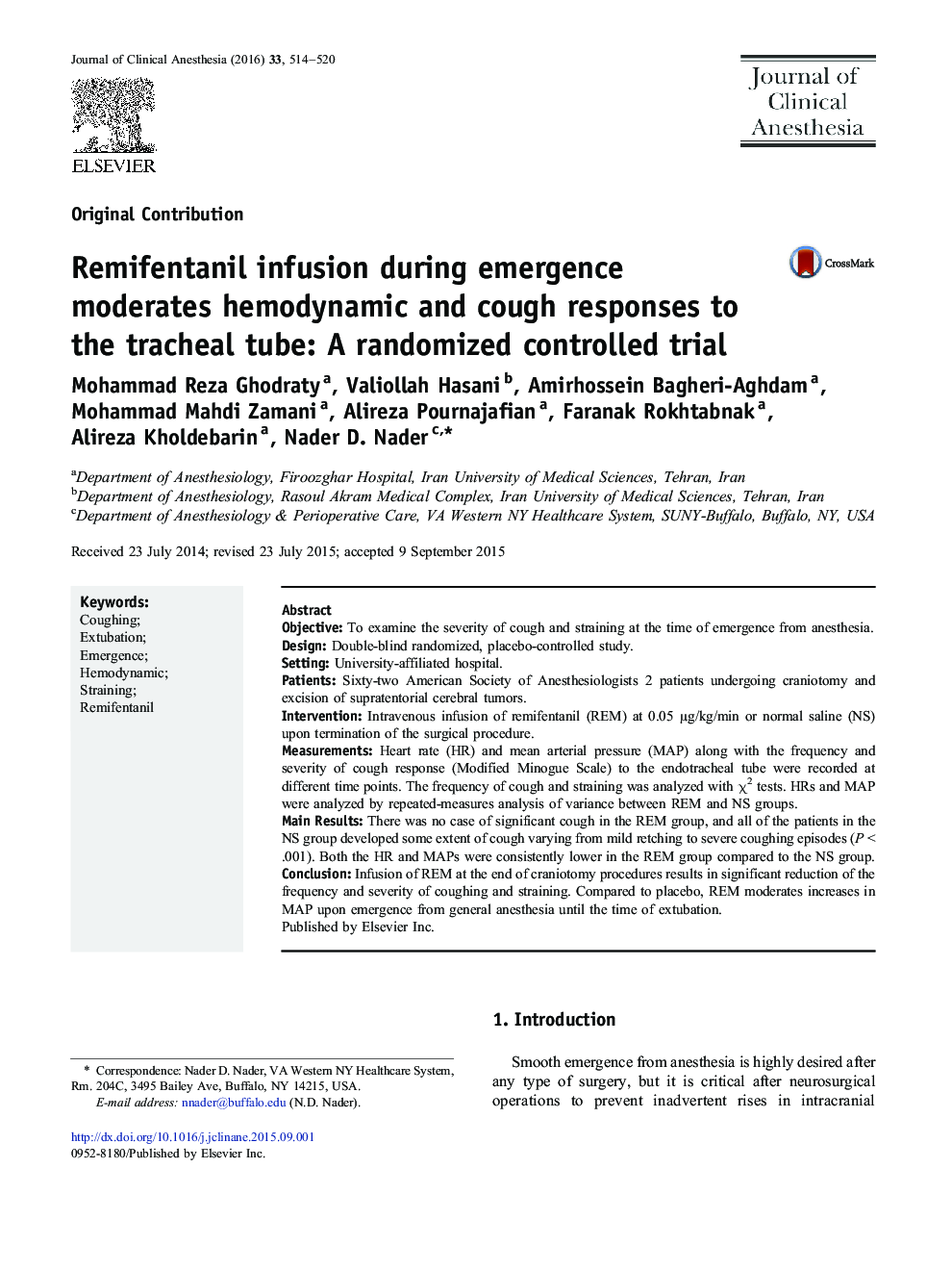| Article ID | Journal | Published Year | Pages | File Type |
|---|---|---|---|---|
| 2762185 | Journal of Clinical Anesthesia | 2016 | 7 Pages |
•Remifentanil decreases the severity of cough in response to the tracheal tube.•Remifentanil decreases the severity of straining in response to the tracheal tube.•Remifentanil reduces mean arterial pressures during emergence from anesthesia.•Remifentanil modestly moderates the heart rate during emergence from anesthesia.
ObjectiveTo examine the severity of cough and straining at the time of emergence from anesthesia.DesignDouble-blind randomized, placebo-controlled study.SettingUniversity-affiliated hospital.PatientsSixty-two American Society of Anesthesiologists 2 patients undergoing craniotomy and excision of supratentorial cerebral tumors.InterventionIntravenous infusion of remifentanil (REM) at 0.05 μg/kg/min or normal saline (NS) upon termination of the surgical procedure.MeasurementsHeart rate (HR) and mean arterial pressure (MAP) along with the frequency and severity of cough response (Modified Minogue Scale) to the endotracheal tube were recorded at different time points. The frequency of cough and straining was analyzed with χ2 tests. HRs and MAP were analyzed by repeated-measures analysis of variance between REM and NS groups.Main ResultsThere was no case of significant cough in the REM group, and all of the patients in the NS group developed some extent of cough varying from mild retching to severe coughing episodes (P < .001). Both the HR and MAPs were consistently lower in the REM group compared to the NS group.ConclusionInfusion of REM at the end of craniotomy procedures results in significant reduction of the frequency and severity of coughing and straining. Compared to placebo, REM moderates increases in MAP upon emergence from general anesthesia until the time of extubation.
